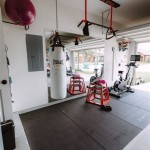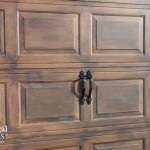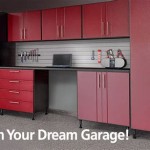Stay Warm This Winter With Comfort Zone Garage Heater Reviews
As the winter months approach, maintaining a comfortable temperature in the garage becomes a priority for many homeowners. Garages are often used for various activities, from working on vehicles to pursuing hobbies, and a cold garage can significantly limit usability. Comfort Zone garage heaters offer a potential solution, providing supplemental heating to combat the chill. This article will provide a detailed exploration of Comfort Zone garage heaters, outlining their features, benefits, limitations, and general considerations for choosing the right model for individual needs.
Comfort Zone is a brand known for producing a range of heating and cooling solutions for both residential and commercial applications. Their garage heaters are designed to provide targeted heating, making them an appealing option for those who need to warm up a specific area rather than the entire house. However, it's crucial to conduct thorough research and review various models before making a purchase. Factors like garage size, insulation, power requirements, and safety features all play critical roles in determining the suitability of a particular heater.
Understanding Comfort Zone Garage Heater Types
Comfort Zone offers a variety of garage heater types, each with its own set of characteristics and suitability for different garage environments. Understanding these distinctions is essential for making an informed purchasing decision. The primary types include forced-air heaters, infrared heaters, and ceramic heaters.
Forced-air heaters operate by drawing in air, heating it using an electrical element, and then blowing the warm air out into the space. These heaters are typically effective at quickly warming up a large area, making them a popular choice for larger garages. However, they can also circulate dust and allergens, which may be a concern for individuals with respiratory sensitivities. They tend to be noisier than other types of heaters as well.
Infrared heaters, on the other hand, generate heat by radiating energy directly to objects and people in their vicinity. They don't heat the air itself, which means they are less susceptible to drafts and can be more energy-efficient in drafty garages. They are also quieter than forced-air heaters. Their effectiveness is reduced in very large, uninsulated spaces though, because they only heat what is directly in their path, and may not adequately warm the entire area.
Ceramic heaters utilize ceramic heating elements, which are known for their efficient heat transfer and safety. They offer a balance between forced-air and infrared heaters. They tend to be more energy efficient than basic forced-air heaters and safer because the ceramic element doesn't get as hot as the coils in a standard forced-air heater. However, they might take longer to warm a larger space compared to a forced-air system. They are considered a good middle-ground option for many garage heating needs.
Key Features and Specifications to Consider
When evaluating Comfort Zone garage heaters, several key features and specifications should be carefully considered to ensure the chosen model meets specific needs and safety standards. These include wattage, BTU output, thermostat control, safety features, and mounting options.
Wattage and BTU (British Thermal Units) output are direct indicators of a heater's heating capacity. Higher wattage generally equates to higher BTU output and the ability to heat a larger space. Determining the correct wattage required for a garage involves calculating the cubic footage of the space and considering the level of insulation. Using a heater that is too small will result in inadequate heating, while a heater that is too large can lead to energy waste and potential overheating.
Thermostat control is crucial for maintaining a consistent and comfortable temperature. A thermostat allows users to set a desired temperature, and the heater will automatically cycle on and off to maintain that level. Some Comfort Zone heaters offer digital thermostats with precise temperature control, while others feature basic adjustable thermostats. The precision and responsiveness of the thermostat can significantly impact energy efficiency and overall comfort.
Safety features are paramount when choosing a garage heater. Look for features such as overheat protection, which automatically shuts off the heater if it reaches an unsafe temperature. Tip-over protection is also important, especially for portable heaters. ETL or UL certification indicates that the heater has been tested and meets established safety standards. These certifications provide assurance that the heater has been rigorously evaluated for potential hazards.
Mounting options can also be a deciding factor. Some Comfort Zone garage heaters are designed for wall or ceiling mounting, which can free up valuable floor space and provide more even heat distribution. Others are portable and can be easily moved from one location to another. Consider the available space and desired heating pattern when choosing a mounting option. Permanently mounted heaters generally require professional installation, while portable heaters offer greater flexibility.
Evaluating Performance and User Reviews
While specifications provide objective data, user reviews offer valuable insights into the real-world performance and reliability of Comfort Zone garage heaters. Studying customer feedback can reveal potential issues, highlight strengths, and help determine whether a particular model is a good fit for individual needs. Pay close attention to reviews that mention heating effectiveness, noise levels, ease of use, and durability.
Heating effectiveness is a primary concern for most buyers. Reviews often describe how well the heater performs in different garage sizes and under various weather conditions. Look for reviews that mention the time it takes to heat the space and the consistency of the temperature. Consider reviews that compare the heater's performance to other brands or models. It can be useful to search for reviews that specify the size of the reviewer's garage to see how the heater performs in a similar space.
Noise levels can be a significant factor, especially for those who use the garage for activities that require concentration or quiet. Forced-air heaters tend to be the loudest, while infrared heaters are typically the quietest. Reviews often describe the noise level in terms of decibels or compare it to common household sounds. If noise is a concern, pay close attention to reviews that discuss the heater's sound output.
Ease of use is another important consideration. Reviews may mention the clarity of the instructions, the simplicity of the controls, and the convenience of features such as remote control or programmable timers. A user-friendly heater can save time and frustration in the long run. Look for reviews that specifically address the ease of setup, operation, and maintenance.
Durability is a key factor in the long-term value of a garage heater. Reviews may mention the build quality of the heater, the longevity of the heating elements, and the frequency of repairs. Consider reviews that discuss the heater's performance after extended use. A durable heater will provide reliable heating for years to come, making it a worthwhile investment.
By thoroughly evaluating user reviews and considering their specific needs, potential buyers can gain a more complete understanding of Comfort Zone garage heaters and make a more informed purchase decision. Examining both the technical specifications and the user experiences provides a balanced perspective that can lead to greater satisfaction with the chosen heater.
It is also important to note that individual experiences can vary. Factors such as garage insulation, ambient temperature, and usage patterns can all influence the performance of a garage heater. Therefore, it is advisable to read a variety of reviews from different sources before making a final decision.

Reviews For Comfort Zone 17065 Btu Ceiling Mount Fan Forced Industrial Utility Electric Heater Furnace With Safety Overheat Protection Pg 1 The Home Depot

The Best Affordable Garage Heater To Stay Warm This Winter According Reviews

Comfort Zone Up To 7500 Watt Electric Garage Heater With Thermostat At Com

Reviews For Comfort Zone 17065 Btu Ceiling Mount Fan Forced Industrial Utility Electric Heater Furnace With Safety Overheat Protection Pg 1 The Home Depot

Comfort Zone Up To 7500 Watt Electric Garage Heater With Thermostat At Com

The Best Affordable Garage Heater To Stay Warm This Winter According Reviews

Heater For Garage Comfort Zone Radiant Review

Comfort Zone Up To 5000 Watt Electric Garage Heater With Thermostat At Com

Comfort Zone Up To 10000 Watt Electric Garage Heater With Thermostat At Com

Comfort Zone Up To 5000 Watt Electric Garage Heater With Thermostat At Com
Related Posts








